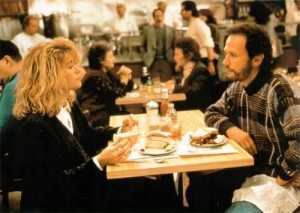Women’s Day!
International Women’s Day was last Thursday, the 8th of March. All across the world people celebrated the day. Worldwide, there are rallies and women get a day off from work. Many of my friends from around the world wished me a “Happy Women’s Day!”
An LA Times article stated that other countries celebrate Women’s Day even more than the United States. For example, the United Kingdom has about 450 events for Women’s Day, while the U.S. has about 253 events, according to the official International Women’s Day website. Oh, and, I also learned that women in Afghanistan received their own internet cafe.
Though it is a day to celebrate womanhood and the advances that women have made over the years, it is also important to reflect how far women still have to go to gain equality.
In a Women and Development class that I am taking at Wellesley, we were assigned a book by Susan Bourque and Kay Warren, “Women of the Andes.” The book compares the social influence, or power, that various women in the Andes region have. Discussing some points brought up in the book, my classmates and I started questioning how much development really provided benefits to these rural women and discovered there is no right answer to that question.
Though development can give women better working conditions and a sense of empowerment, they are still exploited and barred from various jobs. Where in the past, at least they could barter for their livelihood with other good or livestock…now they are constrained by money. This makes me question, how much has women’s status in society actually improved? What are the right steps to improve women’s situation internationally; especially in rural, developing areas?
I think a lot of the problem stems from the fact that there is a male bias in our histories. If men, historically, are taught that they should be doing this “manly” work and know their male ancestors did it in the past, then they have no incentive to change. Gender schemas will continue to persist.
We need to find a way to change the way we think about women historically. Women’s histories need to be included in our textbooks and celebrated as equally important as well. If girls and teens hear historical accounts of women in their culture’s past, they are more likely to see themselves as also significant.
In conclusion, there is still a long way to go for women. And even though I am glad women get a day to celebrate, I wish that we could say that every day was Women’s Day.
P.S. Do you think development is better for women in developing countries? Should we include stories of women’s histories in our history textbooks? Or are they just not as important as learning about the men who had most of the roles of authority?
Women and the Oscars
I read this great article in the Huffington Post that reviewed women and the Oscars and wanted to share it with you all. It really made me think about how women are not well represented in the film industry. Even the movie montage at the beginning of the Oscars represented how women play a subordinate role in the movie industry. The author of the article, Tara Sophia, says:
“Then came a stream of 25 clips showing male heroes talking to, leading or fighting other men. In the middle were a few women, one screaming in stress about her wedding, one screaming because she was being attacked and one screaming to fake an orgasm.”
And with that, the montage ended.”

"I'll have what she is having." Image from the famous scene in When Harry Met Sally after she jokingly fakes an orgasm to prove a point. Nora Ephron, Wellesley Alum '62, wrote this movie and many other popular films. Though it is a hilarious film, it is a strange clip to include in the movie montage.
I would really recommend you read the rest of the article for interesting insights into the entire Oscar process and how it relates to women! Though there are positive role models in the industry (like Meryl Streep!) we need to encourage that the women they play are also strong, positive role models.
It really makes me think about how society can be so effected by the images that we constantly see in society. If ad campaigns that consist of just an image or a 30 second ad can influence us heuristically to buy a certain product or vote for a candidate, then think about the effects of a feature-length movie! For many of us, movies can be inspirational and we can relate on a deep level with well-developed characters. We see over and over again men being the main protagonists of movies, while women play a background role as romantic interests or someone for the man to save. The repetition of these images creates gender norms and schemas that are difficult to break once formed (I’m taking a social psych class which may be guiding my discussion here! haha). But anyways, if we want there to be a more positive view of women, the movie industry is going to need to make a change.
P.S. Do you think more women should be included on the Oscar board? Do you think there is a need for a change in the way women characters are portrayed in movies in general?
Just as a another side-note, a film co-produced by a Wellesley Alum, Fazeelat Azlam ’07, won an Oscar this year! Her movie follows a British-Pakistani plastic surgeon’s journey to Pakistan and his work with survivors of acid attacks there.

